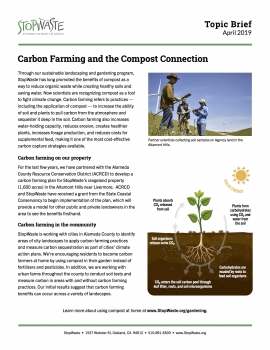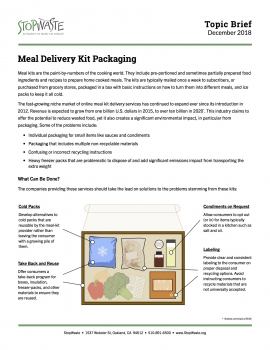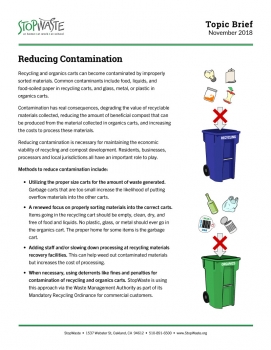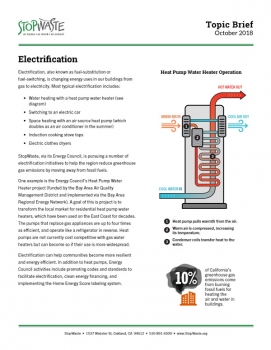Resource Library
 Topic Briefs
Topic Briefs Topic Briefs
Topic Briefs Topic Briefs
Topic BriefsStopWaste’s member agencies are working towards achieving significant reductions in greenhouse gas (GHG) emissions by 2030 and beyond. Through their climate action plans, local governments are increasingly addressing the upstream emissions from the production of goods used locally but produced elsewhere.
Read More Topic Briefs
Topic BriefsEndorsing a circular economy approach to waste reduction means moving away from recycling as the answer to managing materials, and moving to reusable items instead of single use and/or recyclable items. Reuse is considered “upcycling,” or extending the life of an item in its same form with minimal processing.
Read More Topic Briefs
Topic BriefsMeal kits include pre-portioned and sometimes partially prepared food ingredients and recipes to prepare home cooked meals. The kits are typically mailed once a week to subscribers, or purchased from grocery stores, packaged in a box with basic instructions on how to turn them into different meals, and ice packs to keep it all cold.
Read More Topic Briefs
Topic Briefs Topic Briefs
Topic BriefsElectrification, also known as fuel-substitution or fuel-switching, is changing energy uses in our buildings from gas to electricity. StopWaste, via its Energy Council, is pursuing a number of electrification initiatives to help the region reduce greenhouse gas emissions by moving away from fossil fuels.
Read More- Topic Briefs
In an effort to mitigate plastic pollution and reduce the amount of single-use plastic, California lawmakers recently passed Assembly Bill (AB) 1884, which bans full-service restaurants from offering single-use plastic straws unless requested by the customer. The law, which will take eff ect January 1, 2019, calls for fines on establishments beginning with the third violation.
Read More  Topic Briefs
Topic Briefs Topic Briefs
Topic Briefs